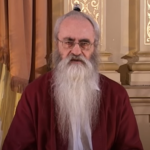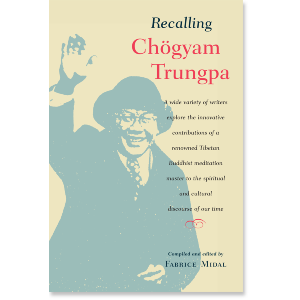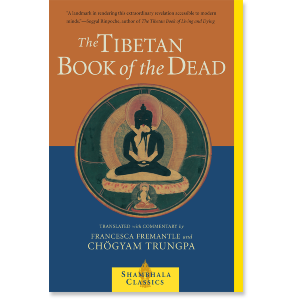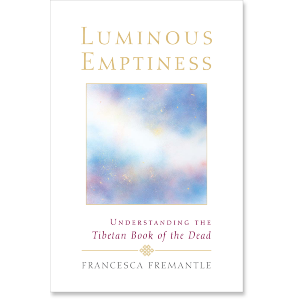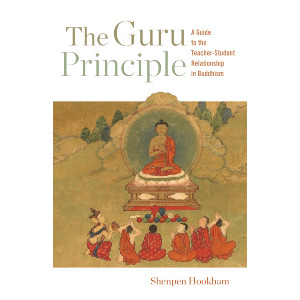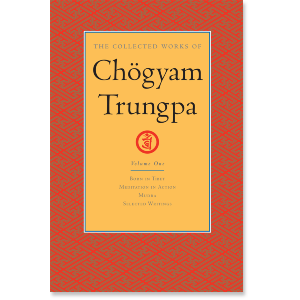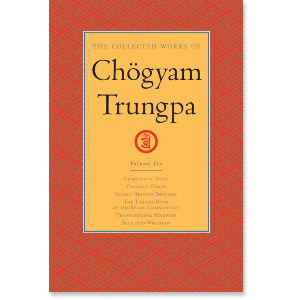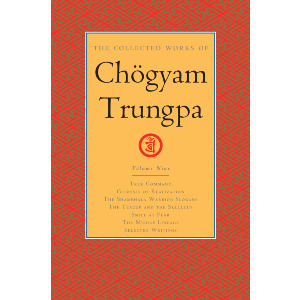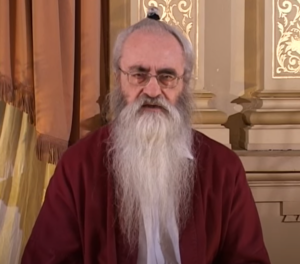
We are sad to share the news that Rigdzin Shikpo (Michael Hookham) passed away on April 28th, 2023.
A short bio of him is included in Recalling Chögyam Trungpa:
"Rigdzin Shikpo, a qualified master of the Nyingma tradition, has studied and practiced Buddhism for over fifty years. Before meeting his main teacher, Chögyam Trungpa Rinpoche, in 1965, he had trained in the Theravada tradition and in the Mahayana while working as a mathematician and physicist. Trungpa Rinpoche gave him extensive and detailed teaching in the preliminary and main practices of the Nyingma Dzogchen tradition, and before leaving for America Rinpoche made Rigdzin Shikpo a lineage holder of the mahamudra and maha ati, and told him to teach mahayana maha ati according to his instructions. He continues to teach students in the Longchen Foundation, founded in 1975 by Trungpa Rinpoche and Dilgo Kyentse Rinpoche, and entrusted to Rigdzin Shikpo to realize the vision. Taking further instruction from Khenpo Tsultrim Gyamtso Rinpoche, who gave him the title Rigdzin Shikpo, he is authorized to teach the whole of the Nyingma tradition."
Included in this volume is his profound account of Trungpa Rinpoche's teachings in the piece "The Highest Maha Ati Teachings: Chögyam Trungpa Rinpoche in Great Britain". He recounts Trungpa Rinpoche's teaching:
He said that all true creativity and significance came from this immediacy and from nowhere else. There was a natural process of movement within Being, a central expression of fresh creativity that somehow presented the truth and value of Being to itself through the medium of the person. As to the question why there was anything at all, he said that if you were to try to describe the nature of reality, you could speak of it in terms of an ever-yielding space, movement within that space, and a quality of aliveness permeating both. These three qualities were really not independent of each other, only described separately for convenience. The ever-yielding space suggests an intrinsic quality of movement and a certain sensitivity to it; movement implies space in which movement takes place and an aliveness giving rise to it. To be alive always implies a sense of movement and unfoldment.
Rinpoche said that my very questions arose from the play of these three qualities, and that the three qualities were basic to the whole process of questioning itself. He said that within beings there was a great sadness and that the cause of the great sadness was the loss of awareness of our true home, going astray, losing our way in a jungle of confused emotions, projections and misunderstandings. The going astray occurs at some deep level where we have mistaken Being for our ordinary sense of self. It is as though the snare of our self-delusion has trapped us so completely that escape seems virtually impossible. Yet in another sense nothing has really happened at all; for we remain ineluctably embraced within the sphere of Being and can never be apart from the naturalness of its movement.
One of his closest students is Francesca Freemantle who worked with Trungpa Rinpoche to translate the Tibetan Book of the Dead. She went on to write Luminous Emptiness: Understanding the Tibetan Book of the Dead, one of the most beloved books of readers of Tibetan Buddhism. The book begins with the following dedication:
This book is dedicated
to the memory of
the Vidyadhara, Chögyam Trungpa Rinpoche,
incomparable messenger of dharma
and to
Rigdzin Shikpo (Michael Hookham)
who continues his tradition
In the preface, Freemantle writes,
"When work on the [Tibetan Book of the Dead] translation was finished, I came back to England to live in London, fully intending to return frequently to the United States. But at that time I was not committed enough to be able to follow a single path, and too many other interests absorbed my attention; in particular, a deep karmic link with Bengal and Hindu tantra needed to be resolved. However, the connection with Rinpoche was never broken, so eventually, after a long, roundabout journey, I came back to the practice of vajrayana, thanks to the influence and example of my dharma brother, Rigdzin Shikpo.
As Michael Hookham, Rigdzin Shikpo was one of Trungpa Rinpoche’s earliest Western students. He had already been practicing various types of Buddhist meditation for ten years when they met in 1965, so he was exceptionally well prepared. Rinpoche gave him the teachings and transmission of the Nyingma lineage and later authorized him to establish the Longchen Foundation, which at present is based in Oxford and North Wales. In 1993, Michael completed a three-year retreat under the direction of Khenpo Tsultrim Gyamtso Rinpoche and was given the name Rigdzin Shikpo, by which he is now known.
With a deep knowledge of Buddhism, he has an extraordinary gift for expressing it in vivid and poetic ways and for creating links with many aspects of Western culture. Above all, he has an attitude of complete devotion, so that his mind has become one with the mind of the guru. Listening to him talk about dharma, I often feel as though Trungpa Rinpoche is speaking through his voice. Without him, I would never have gained the experience or the confidence to write about these profound teachings. With regard to this book, he has answered my innumerable questions with endless patience and interest. I am particularly grateful to him for his help in understanding the practices and terminology of dzogchen, and especially for sharing the insights of his yogic experience."
$24.95 - Paperback
$16.95 - Paperback
$49.95 - Paperback
$17.95 - Paperback
Shenpen Hookham also related his wisdom in her 2021 book The Guru Principle: A Guide to the Teacher-Student Relationship in Buddhism
The Mahayana sutras such as the Avatamsaka present the kalyanamitra or guru within the context of a vast cosmic vision of the whole of space and time. Here again we see this play between the personal and the impersonal, the one and the many, the guru in principle and the guru as person. Reciting the King of Aspiration Prayers, the Aspiration for Noble Excellent Conduct (Samantabhadracharya Pranidhana) is about following the example of the greatest of the bodhisattvas, receiving their adhishtana, and making the right karmic connections to meet perfect kalyanamitras in all our future lives, working together as one great mandala of awakening in order to bring all beings to awakening. In other words, it is all about the awakened heart (bodhichitta).
As Rigdzin Shikpo says in his book Mahayana Sutra Principles, this is the Mahayana vision that connects us into the power of the universe itself.* What we think of as the materiality of this universe takes its form from the volitions, aspirations, prayers, and intentions of awakened beings and beings striving for happiness and awakening. Samsara is simply a distorted version of the true nature of the universe. The reality of totality is trying to enlighten beings and bring them back to itself.
Rigdzin Shikpo's piece, "Always Turn Towards, Never Turn Away", appears in the volume Best Buddhist Writing 2008.
The power of our false view of the world is like an enchantment. The great fourteenth-century master Longchen Rabjam spoke of it in these terms. Enchantment is a good word for it. It’s as if we are under a spell, or “glamour,” that causes us to see things that aren’t there and fail to see things that are. This false view makes up the world as we know it.
This spell is not cast upon us by some evil magician; in a sense, we create it ourselves. Through our practice of openness and awareness, we become convinced that we are under an enchantment. A gradual sense of disenchantment—in the positive sense—arises. Now you might think that this would come as a great relief, but not so, unfortunately. The biggest shock often comes as the spell dissolves, and we find ourselves saying, “Where has my world gone?” Suddenly we realize that the universe is a much vaster place than we ever imagined. We see what a parochial view we had before. We may yowl that we don’t want to go there!We don’t want it to be so vast and open! But it’s just a sign that we need to straighten ourselves out.
Fortunately, it’s not fundamentally that difficult. Many others have done so before, and so can we. This is the Buddhist view and the path of openness, which is certainly not pessimistic."
Rigdzin Shikpo also appears in three of the volumes (One, Six, and Nine) of the Collected Works of Chogyam Trungpa where he contextualizes several articles and works by Trungpa Rinpoche.
We here at Shambhala Publications raise our hands together in appreciation for a lifetime of work that benefited so many.
Nikko Odiseos
The Collected Works of Chogyam Trungpa: Volume One
$60.00 - Hardcover
The Collected Works of Chogyam Trungpa: Volume Six
$49.95 - Hardcover
The Collected Works of Chögyam Trungpa, Volume 9
$60.00 - Hardcover

